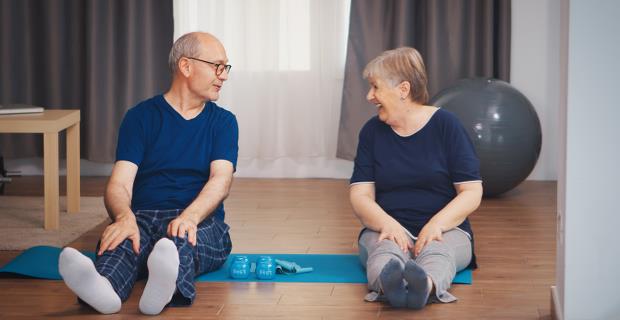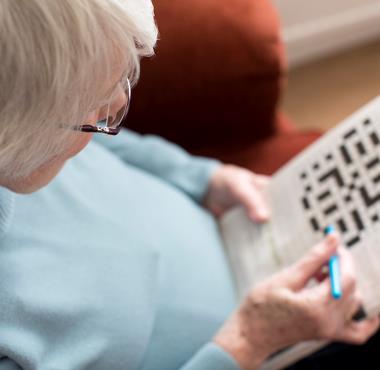For the growing number of family caregivers and relatives, navigating the complex care needs of dementia can be challenging. Family caregivers take on a great number of nursing and care tasks, often without the training, skills, or aids available to professionals.
As humans, it is natural to want to rely on facts. We want to understand what we are dealing with and act according to standards, ensuring that we act based on science rather than what feels right in the moment.
But when it comes to dementia, there is no single correct solution. There is one for each person. On these pages, we provide some tips and knowledge to help you find your way.
We cannot remove all the suffering and limitations associated with the dementia condition. But we can advise on dementia care in practice. And help you make the most of dignified dementia care.
A social and person-centered approach to dementia
For family caregivers, taking care of a relative with dementia can be lonely and isolating. A social approach to dementia is beneficial for both the person with dementia as well as the support system surrounding them.
A social approach to dementia means a focus on safety, quality of life, and independence based on each individual’s unique situation. Providing individualized support and empowering people to be as resourceful and live as independently as possible – for as long as possible.
For health care professionals, this means making sure there is a solid support system in place, so the person with dementia as well as their relatives do not feel alone in their situation. It also means providing knowledge and support to the people around the person with dementia.
For family caregivers, make sure you have a social safety net that helps you feel less alone. Try not to focus solely on the medical, often negative sides, of dementia, but maintain regular social contact with friends as well as any social services that help provide care.
Collaboration between the family caregivers at home and the system of health care professionals in general practice, hospital, and municipalities is key to providing dignified dementia care based on a social approach. A few of the important pillars in a social approach include early detection and support for relatives.
Early detection and diagnosis
Early detection and diagnosis promotes early and optimal management of dementia as well as any related issues such as incontinence.
People with dementia have the same rights as people without dementia to a full continence assessment and management of incontinence problems conducted by trained health care professionals (always follow local regulations and guidelines for continence care).
Incontinence can have different physical, cognitive, social, or psychological causes. A thorough continence assessment will identify any accompanying physical diagnosis. The person with dementia will also be able to be referred to specialists, e.g. a urologist, physical therapist, or gynecologist, when necessary.
Types of dementia
During detection and diagnosis, determining the type of dementia is important for providing the optimal quality of care in the future. Dementia has become the common term for loss of memory and cognitive abilities that interfere with daily life. But there are many different forms of dementia, with a few of the most common being:
- Alzheimer’s Disease is the most common form of dementia, accounting for approximately 60–70% of cases. Alzheimer’s is believed to be caused by microscopic changes in the brain caused by plaques (protein fragments) and tangles (twisted fibers) in nerve cells.
- Vascular Dementia is the second most frequent form of dementia. Vascular dementia is marked by a decline in thinking skills caused by reduced blood flow to regions of the brain (often because of small clots), which eventually deprives the brain of oxygen and nutrients.
- Lewy-Body Dementia is the third most frequent type of dementia. This type of dementia is marked by decline in reasoning, thinking and functioning due to brain abnormalities caused by Alpha-synuclein protein.
- Creutzfeld Jacob is an extremely rare, fast progressing form of dementia, which develops when the prion protein begins folding in an abnormal shape.
- Huntington’s Disease is a progressive brain disorder caused by a defective gene on chromosome 4, affecting movement, mood, and thinking skills.
- Parkinson’s Disease Dementia is the decline in thinking and reasoning that develops in about 50-80% of patients who have been diagnosed with Parkinson’s disease.
- Down’s Syndrome and Dementia: Those affected with Down’s syndrome have a significantly increased risk of developing Alzheimer’s.
- Mixed Dementia occurs when more than one cause of dementia occurs simultaneously. Most often, Alzheimer’s may coexist with Vascular Dementia.
Three phases of dementia
Most people with dementia go through three phases of dementia, in which the person gradually loses cognitive and physical skills. As the phases progress, the patient requires more intensive help maintaining personal care and hygiene and becomes increasingly dependent on care. In some cases, preventive treatment can halt the progression of dementia, so that a person remains in the same phase.
Do you know what characterizes the three phases of dementia? Find out the characteristics of each stage and see how you can offer the best help in each phase.
The system around someone with dementia
People with dementia become increasingly dependent on the people around them. Initially, on their loved ones, and increasingly on the growing support system of professionals surrounding their care.
Relatives and family caregiver are especially affected: their lives and relationships change drastically. As a part of 'the system' around a person with dementia, family caregivers become the central person coordinating several different care professionals. The system can be complicated and complex.
Who might be involved in dementia care, and what role does each person play, and who do you reach out for when you need additional help?
The system around dementia varies from country to country and region to region, but these are a few of the people you may meet in the system around a person with dementia.
|
General practitioner – along with practitioner assistant or nurse As long as a dementia patient lives at home, the general practitioner is usually your first point of contact. This person plays an important role in identifying dementia and can assist in making the diagnosis. He or she takes care of the treatment plan, listens to your needs, and provides practical information about dealing with dementia at home. They will also bring you into contact with other professionals. Whenever you have a question, something changes in the clinical picture, or you need advice - contact your general practitioner. |
|
Dementia nurse (varies per region) A dementia nurse listens, answers questions, and guides on all issues related to dementia. Depending on the region, the dementia nurse may be the main contact person and may be the person who coordinates with other professionals for assistance where necessary (such as home care, occupational therapy, physical therapy). |
|
Home care (varies per region) A home care worker offers guidance and support to people who live at home and who need help with care, nursing, or help in home care. Depending on the region, home care may have contact to other professionals, such as occupational and physiotherapy, district nurses, or dementia nurses. Contact your general practitioner or local municipality for guidance on home care in your region. |
|
Physical therapist A physical therapist can provide support to increase the self-reliance of people with dementia. Exercise and mobility has a positive effect on the course of the disease. They can also advise on home safety, strategies to reduce fall risk, and techniques to improve communication. Tip: Speak with your general practitioner about your needs for physical therapy. Be sure to investigate if your insurance covers some of the fee. |
|
Occupational therapist An occupational therapist can help to increase self-reliance and ensure that the environment around the person with dementia is designed to be dementia-friendly. They can advise on safety, communication, and routines. Tip: Speak with your general practitioner about your needs for occupational therapy. Be sure to investigate if your insurance covers some of the fee. |
|
Volunteer organizations Volunteer organizations can be a great support for relatives and family caregivers. Depending on the region, volunteer organizations provide education, training, and relative support groups. |
|
Psychiatric nurse or mental health team Mental health teams can help when behavioral problems are affecting everyday life, including if behavioral problems are affecting bathroom or hygiene habits. Generally, speak with your general practitioner about any needs or concerns you have. They can refer you to psychiatric and mental health specialists. |
|
Incontinence specialist or incontinence nurse An incontinence specialist can help with continence assessment and a plan for continence management. When a person is no longer able to go to the toilet independently, it is time to introduce incontinence aids. Incontinence products such as pull-ups or pads are often recommended. In some regions, these products are covered by reimbursement or prescription programs, so be sure to check if you have programs to cover your costs. |





